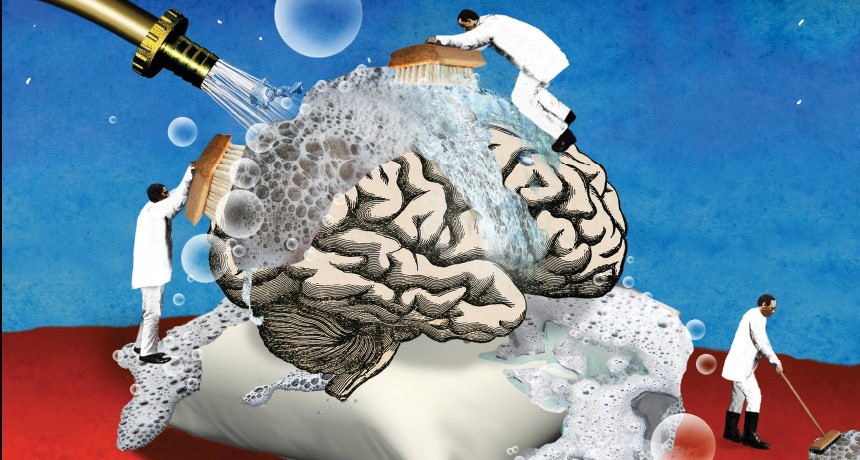Why Your Brain Needs Sleep
On the weekend I was able to link up with some friends for a pick up game of football. There's a group message for these games. And since the Spring I've had to decline the invites and posts to come out to play.
That all changed Saturday when we met up for a game. And it had been a year or so since I'd been out to play. I expected there would be some rust. And I expected to be sore later. Active recovery, nutrition and sleep had to be planned and dialed in if I expected to get through the days that followed.
I should add that after the game I stopped in to the gym to test some lifts. So I knew sleep would come easily that evening.
But why do we need sleep? And how are my needs for sleep different than that of a baby or a young child? (cue the jokes of being a big baby or acting like a child on occasion...I'll wait)
A recent study explains the different needs for sleep at various stages in life.
As a baby up until two or three years of age sleep is needed for neural re-organization and learning. This is when our brain is still building and developing and we see the changes almost daily as first steps are taken and first words are spoken. This learning occurs during REM (rapid eye movement) stage sleep and for babies this can account for 50% of sleep. This makes sense when you consider the amount of growth and learning that takes place in the first 24 to 36 months. This is also the reason we let babies sleep as long as they need and don't wake them. When you wake someone deep in REM stage sleep they will be tired, cranky and irritable for the rest of the day.
Once we turn two or three we use sleep more for maintenance and repair. During sleep there is clearance of metabolites and circuit reorganization. And we start to spend less of our sleep in REM. By the age of 10 this has reduced from 50% as a baby to 25% as a 10 year old.
clear metabolites and re-organize circuits.
And the proportion of our sleep as REM continues to drop as we age.
At 50 years old we spend only about 15% of our total sleep time in REM. So this means less time for repair, metabolic clearance and circuit re-organization.
In the book Younger Next Year, the authors talk about life, and more specifically our health, being divided into two stages. We are either in a stage of growth or decay. While the number one rule of the authors is to exercise six days per week, we can see how a lack of sleep either supports our ability to recover from exercise, through repair and re-organization, and reap the rewards, or impairs it.
On the flip side a lack of sleep leads to dementia and cognitive disorders. There is less opportunity for repair as only 15% of our sleep may be REM stage and therefore it becomes even more critical to have routines and habits in place to facilitate quality sleep.
Click here for some tips on how to establish an optimal routine for the best sleep.
We've always been big advocates for getting enough quality sleep every night. There will be times when you can't train as frequently or intensely as you'd like. Sometimes there isn't the opportunity or availability of the best quality nutrition. Better sleep doesn't cost you anything and everyone knows how to do it. Protect your sleep so can take advantage of the repair that occurs when your head hits the pillow and you stave of the decay that can occur with age.
References
Cao, J., Herman, A. B., West, G. B., Poe, G., & Savage, V. M. (2019). Unraveling why we sleep: Quantitative analysis reveals abrupt transition from neural reorganization to repair in early development. bioRxiv, 827212.
Crowley, C., Lodge, H. S., Leslie, D., & Adamson, R. (2004). Younger next year. HighBridge.
When you subscribe to the blog, we will send you an e-mail when there are new updates on the site so you wouldn't miss them.

Comments